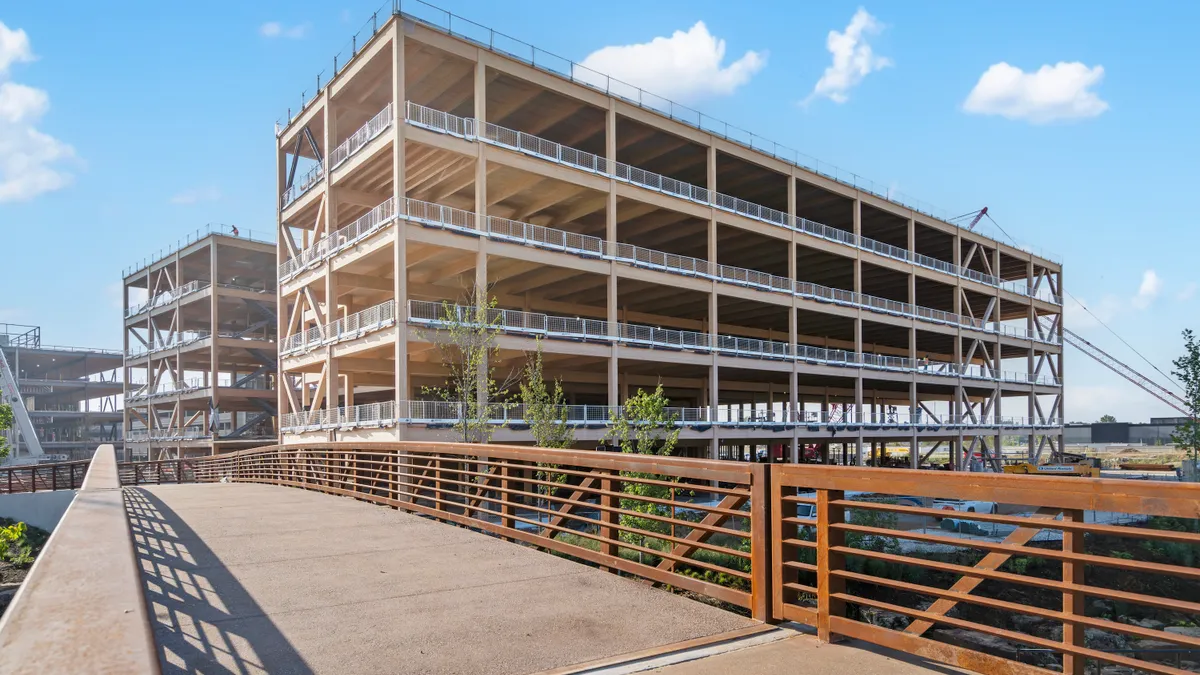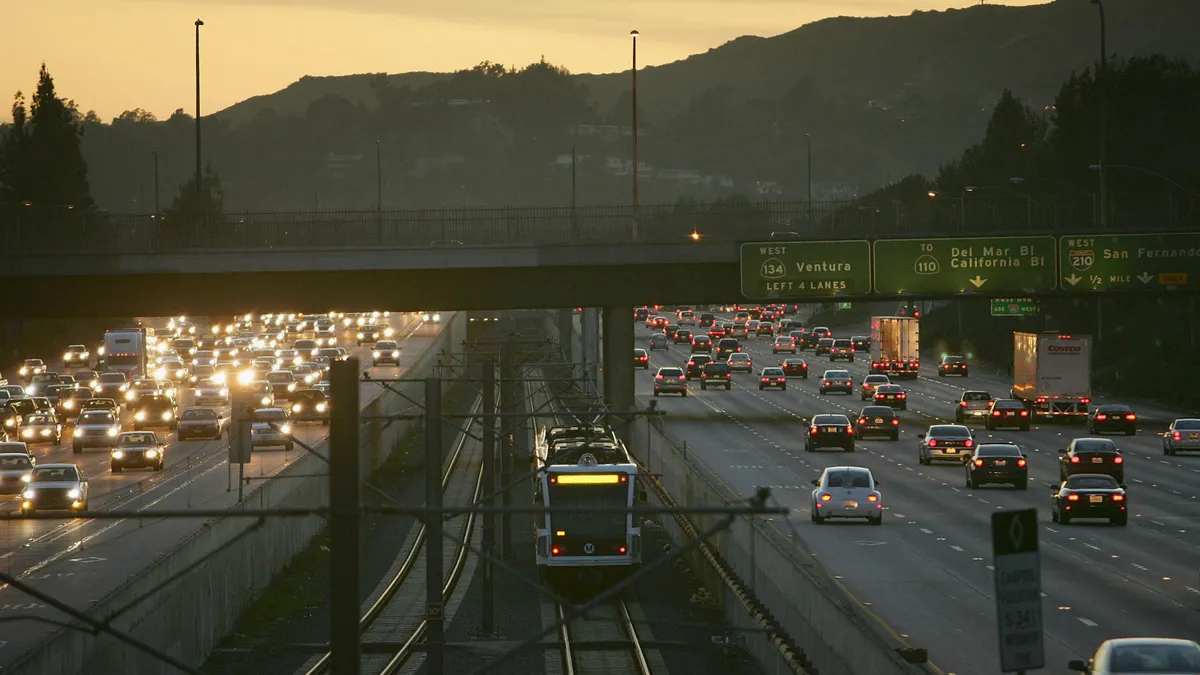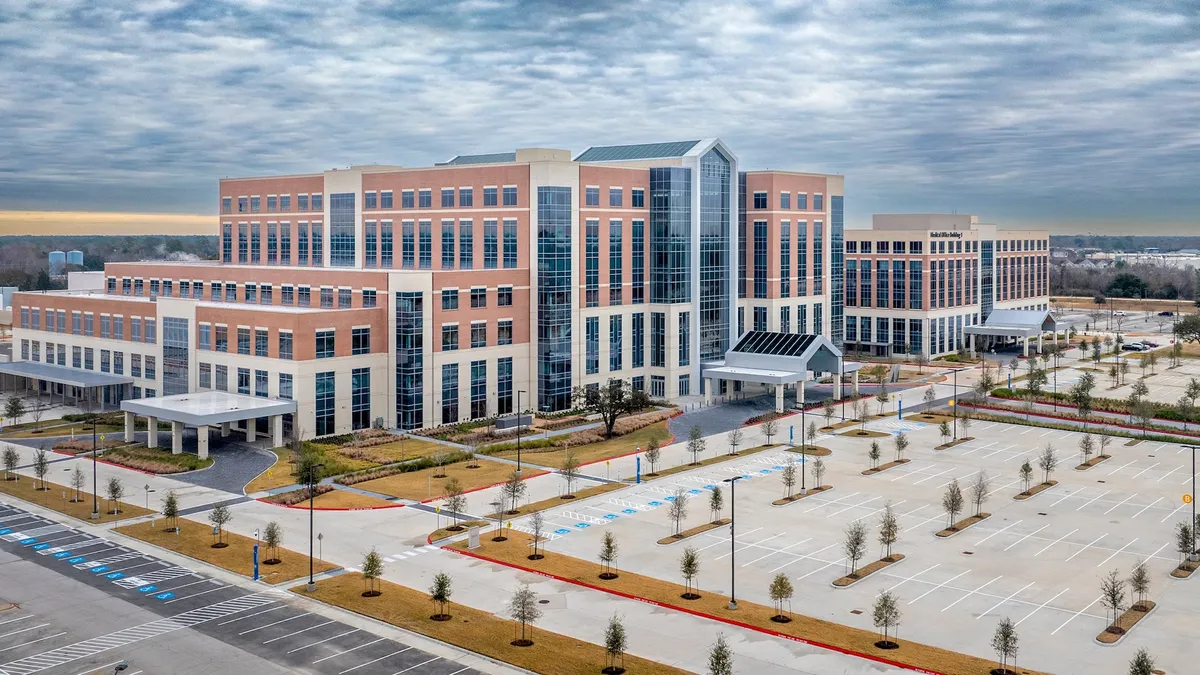As the coronavirus spread continues to spur new federal health guidelines advising companies and employees to continue to work remotely, the construction industry faces the challenge of not falling behind on projects underway while ensuring the health of workers.
“The majority of the industry isn’t as prepared for or lacks experience in working remotely,” said Robert Yuen, CEO and co-founder of Monograph, a project management software company for the AEC industry.
Construction companies rely on person-to-person internal interactions, Yuen said, with most virtual responses having been between contractors and clients or other stakeholders.
“Adjusting to a remote-work environment is putting pressure on firms that have not invested in internal knowledge documentation, communication tools … robust video conferencing tools ... and real-time project management solutions that keep everyone in sync,” Yuen told Construction Dive.
A second pain point is a lack of remote-friendly infrastructure, he added. “For example, we’ve found that many firms and their IT departments have struggled with seat-based licensing specifically with their modeling software.”
Some tech solutions, like Spot the robot dog from Boston Dynamics, offer the ability to image capture with few people on the jobsite. Spot can be programed to walk around the site and can move autonomously. But even such automated processes can't operate in times like these.
To learn more about what construction companies are doing, or how they’re being advised to proceed, Construction Dive reached out to contractors and tech developers nationwide.
Tim Steigerwald, president, CEO and chairman of Messer Construction Co., in Cincinnati
"We’ve advised our employees to practice social distancing while working whenever possible, including hosting meetings remotely or in areas that allow for 6 feet of separation. Additionally, employees are taking their computing devices home each day so they have constant access to our intranet, project information, file storage, etc. We have incredibly strong relationships with our project partners and are in constant communication about how best to maintain work progress and safety onsite."
James J. Ferry, president of Ferry Electric, in Pittsburgh
"On Tuesday we finished upgrading our network capabilities so 100% of our office employees will be able to work from home. We are giving the employees the option to work from home, but we have not made it mandatory.
We’ve offered a monetary reimbursement for employees toward upgrades to their personal home computer setup if necessary to accommodate work from home. The reimbursement is intended to be a help toward defraying a portion of their qualifying unexpected personal expense. It’s not intended to completely cover the purchase, and the equipment bought with the reimbursement remains the property of the employee."
Erol Ahmed, director of communications for autonomous machinery firm Built Robotics, in San Francisco
"When a partner [construction] site might have delayed or postponed work — for whatever reason — the protocol for our robots normally is to also stop working. For safety reasons, we don’t allow the robots to operate without supervision within close proximity. If a jobsite isn’t staffed for proper remote operation, the robots go offline."
John Fish, CEO of Suffolk Construction, in Boston
"As a result of Boston Mayor Martin Walsh’s order to stop all construction, Suffolk suspended onsite work on our impacted Boston-based projects effective [March 18]. As always, our main priority is the safety of our people, teams and partners. We will be prepared to safely mobilize our teams and resume onsite work on our projects once our teams are allowed to return to the jobsites. The spread of COVID-19 remains unpredictable so we will continue to monitor and assess the situation on an ongoing basis."
Robert Yuen, CEO and co-founder of Monograph, in San Francisco
"It depends if the project’s local economy enforces some sort of stay-at-home or 'shelter-in-place' policy. It’s important to remember, too, that AEC is a big industry made up of fragmented and hyper-localized services –– the reaction to the pandemic thus far has more widely been addressed on a local level. We’re already seeing cities like Boston shut down construction, so we do foresee construction projects of all scales being impacted. However, with situations altering so rapidly at this time, it's difficult to precisely predict how deeply those timelines will be implicated.
In the coming months, we anticipate an influx of firms that will be auditing their operations and looking to either save money or improve efficiency under these new conditions –– looking for cloud-based solutions that are tailored to their current needs as professionals in the AEC industry.”
Stacy Scopano, chief technology officer of Skender, in Chicago
"It’s a people-process-technology-driven response. The majority of our peers and proactive organizations are doing regular looks at the government's responses and advice and figuring out how to process and guide their own processes. On the people side you’re trying to basically connect the government level and the people level and making sure your people are safe. That’s the priority.
We’re ensuring our committees are gathering on regular rhythms, more than once a week to ensure we’re responding to any issues in the supply chain. And from a technology perspective, we’re having a voluntary, heavily advocated work-from-home policy. We’ve set up guidance on how to connect remotely to networks. We’re offering tutorials, videos and training in case our workers are a little rusty, while making sure we have the right amount of bandwidth to ensure we’re working.
Ongoing projects need to be as fluid as possible, and we’re making sure we’re responding as quickly as possible. In Chicago, it’s still in a block-and-tackle, preventative type of stance. We’ve seen the federal and local governments advocating for a shelter-in-pace policy.
Really, in terms of biggest impact, we’re talking about the subset of projects in the full throws of the onsite work in the construction timeline. It’s all about how you handle it, laying down rules of engagement with workers and with clientele."
Official company statement, Skanska
As a safety precaution, we have implemented a ban on international business travel across the Skanska Group applying to all 35,000 employees. If meetings or gatherings have been organized where participants (internal or external to Skanska) were planning to travel from country to country, we have asked our employees to host these via online meeting tools. We’ve increased the awareness in our offices and across our projects for the need to exercise good hygiene, especially hand washing. Finally, we’ve asked any colleagues who show any symptoms of illness to stay at home. All to keep our work environments as healthy as possible.
For a roundup of all of Construction Dive’s coronavirus coverage, click here.






















